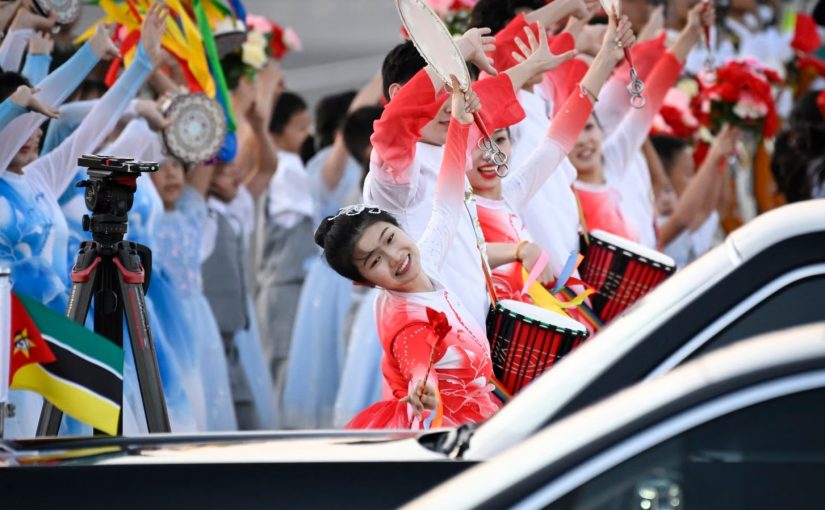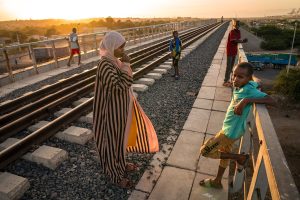China’s Strategic Charm Offensive: Strengthening Ties with African Leaders
3 min read

This week, China has rolled out the red carpet for over 50 African leaders in Beijing, showcasing an elaborate summit designed to bolster bilateral relations amid global political and economic uncertainty. The spectacle, which included vibrant performances by dancers in traditional attire, aimed to flatter and engage the African dignitaries, according to Macharia Munene, a professor of international relations based in Kenya. The lavish welcome was meticulously orchestrated to convey equality and mutual respect between China and the African nations.
Notable leaders such as South Africa’s President Cyril Ramaphosa and Kenya’s President William Ruto participated in personal meetings with Chinese President Xi Jinping, followed by tours of Beijing and other major cities. This gesture underscores China’s strategy of aligning itself with African countries as fellow “victims of Western imperialism,” as Prof. Munene describes it.
Paul Frimpong, executive director of the Africa-China Centre for Policy and Advisory in Ghana, notes that Western powers and affluent Gulf states are increasingly vying to counterbalance China’s influence in Africa. He suggests that there is significant interest and competition surrounding Africa’s potential, further fueled by China’s growing presence on the continent.
Cobus van Staden, co-founder of the China-Global South Project, highlights China’s efforts to present itself as a developing nation in solidarity with Africa and the Global South. Unlike Western aid models that often come with conditions and a tone of moral instruction, China’s approach is characterized by a lack of “preaching,” focusing instead on mutual benefit and partnership.

Over the past two decades, China has solidified its position as Africa’s largest trading partner. According to the International Monetary Fund (IMF), a fifth of Africa’s exports are directed to China, encompassing metals, minerals, and fuels. The value of these exports has quadrupled since 2001. Additionally, China is the primary source of manufactured goods and machinery for African nations, although the trade balance often heavily favors China.
During his recent meeting with President Xi, President Ramaphosa emphasized the need to address South Africa’s trade deficit and the structure of their trade relationship. The subsequent joint communique indicated China’s commitment to enhancing job creation in South Africa, including job recruitment events for Chinese businesses aimed at boosting local employment.
Kenya, meanwhile, is seeking increased financial support despite a significant debt burden that consumes nearly two-thirds of its annual revenue. This financial strain has recently sparked protests in Kenya over new tax proposals intended to address the budget deficit. President Ruto is negotiating for funding to complete various infrastructure projects, including the Standard Gauge Railway (SGR) linking Kenya’s coast with Uganda, as well as road construction, dam building, a pharmaceutical park, and a tech-driven transport system for Nairobi. After initially financing the SGR, China halted further investment four years ago, leaving the railway incomplete.

China’s role as a major lender to numerous African countries has faced scrutiny, particularly as several nations, including Ghana, Zambia, and Ethiopia, have encountered debt crises. Debt sustainability remains a critical issue in discussions on Sino-African relations, and it is expected to be a key topic at the current summit.
The ongoing debt challenges illustrate that foreign powers, including China, act in their self-interest. African nations must enhance their own economic resilience and reduce dependency on external assistance. The IMF has projected a continued slowdown in China’s economic growth, urging African countries to strengthen regional integration and implement reforms to boost local revenue.
Dr. Van Staden advises that African leaders need to navigate these diplomatic encounters with a strategic mindset, transcending the superficial allure of these summits. By crafting their own deals and establishing their own terms, they can better position their countries for sustainable growth and equitable partnerships.